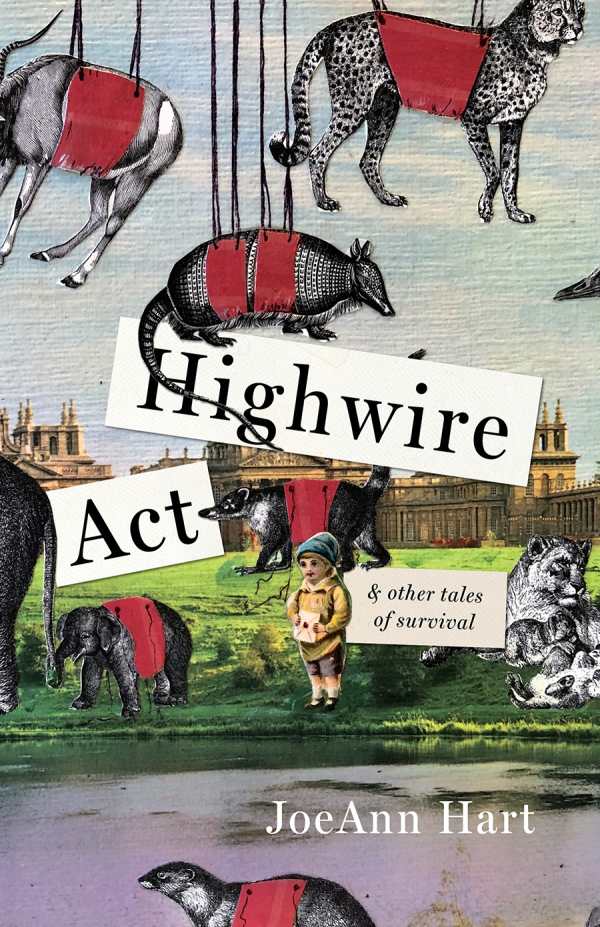Highwire Act
& Other Tales of Survival
In the inventive short stories of JoeAnn Hart’s Hudson Prize-winning collection Highwire Act, people face catastrophes and discover connections with animals.
Some of the stories are set in the real world; others occupy a speculative future. In “Reef of Plagues,” Caribbean citizen scientists decry American tourists’ ignorance. A college student argues over ethical eating with her parents in “Organic, Local, and Cruelty-Free.” In “Huldufólk,” a divorcee wonders how to revolutionize her life while on an Icelandic tour. “Good Job, Robin” depicts a nourishing relationship on a futuristic cricket farm. The chilling title story, set in a hologram circus, imagines a repressive, mindfulness-based society that sends its dead down a chute—to audience gasps.
The striking metaphors draw on nature imagery, as in “worries began to bloom like algae in a stagnant pond.” Animals’ helpless situations (there’s a stranded cow and an injured seal) sometimes mirror humans’. In “Float,” both Duncan, whose business and marriage alike are failing, and the gull he rescues are wounded specimens. Self-sufficiency often contrasts with carelessness. The prospect of progress is called into question in “Woodbine & Asters,” in which a fierce grandmother resists road improvements that will displace her vegetable stand.
The collection has thematic breadth: there is a touch of domestic horror to “Sunk” and the haunted-house narrative “Piece of History.” Recent events enter into “Flying Home,” in which a woman dying of COVID-19 watches birds from her hospital window. Attempted suicide links “Thirteen Minutes” and “When You Are Done Being Happy.”
The varied tales in Highwire Act are clear-eyed in their outlooks on current and future calamities. Whether they’re earthbound or science fiction, there’s no escaping the severity of these tales—or the realism of their visions: “There was nothing to be gained by looking back in nostalgia, and everything to be lost by looking forward with dread.”
Reviewed by
Rebecca Foster
Disclosure: This article is not an endorsement, but a review. The publisher of this book provided free copies of the book to have their book reviewed by a professional reviewer. No fee was paid by the publisher for this review. Foreword Reviews only recommends books that we love. Foreword Magazine, Inc. is disclosing this in accordance with the Federal Trade Commission’s 16 CFR, Part 255.


